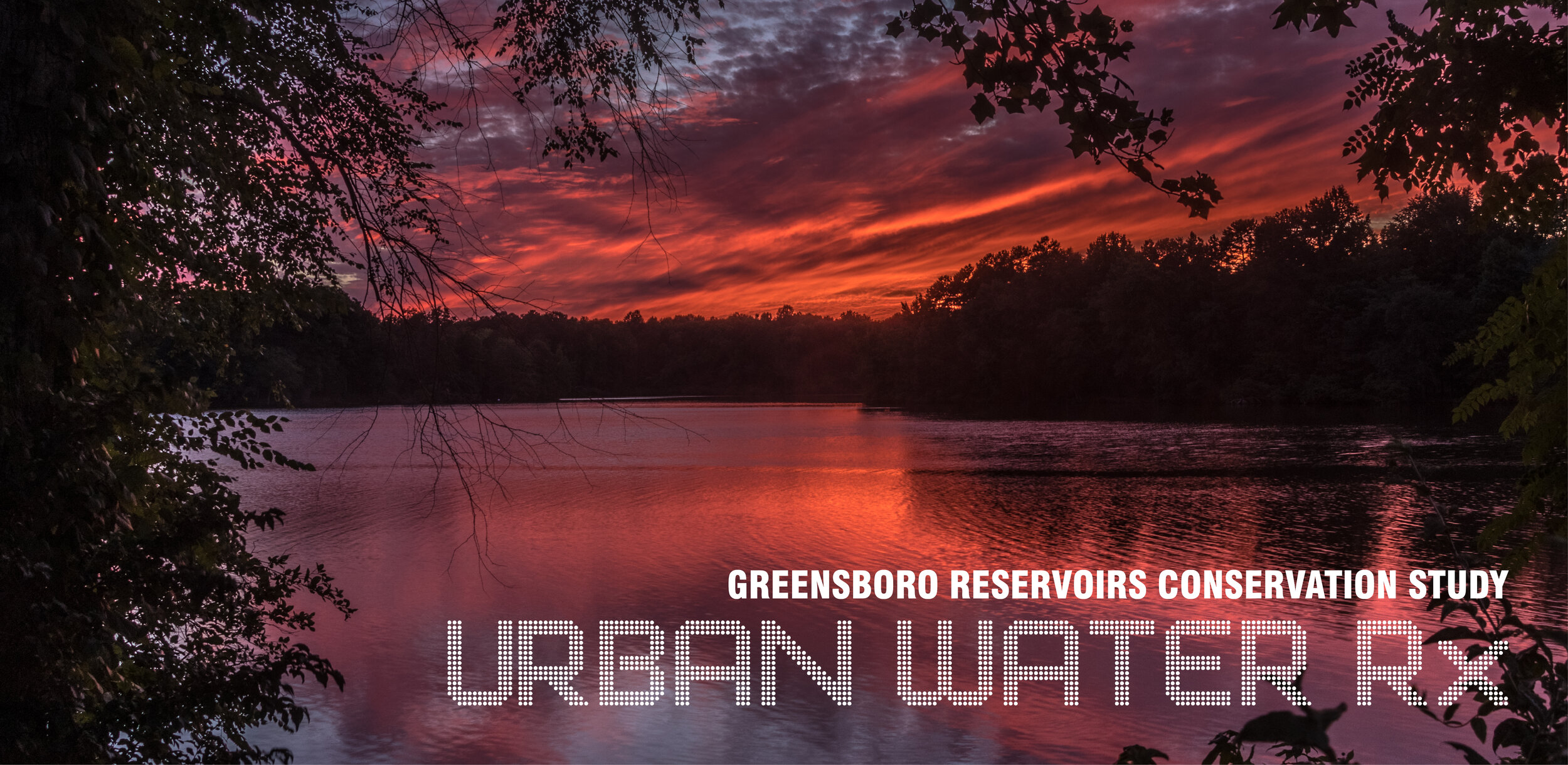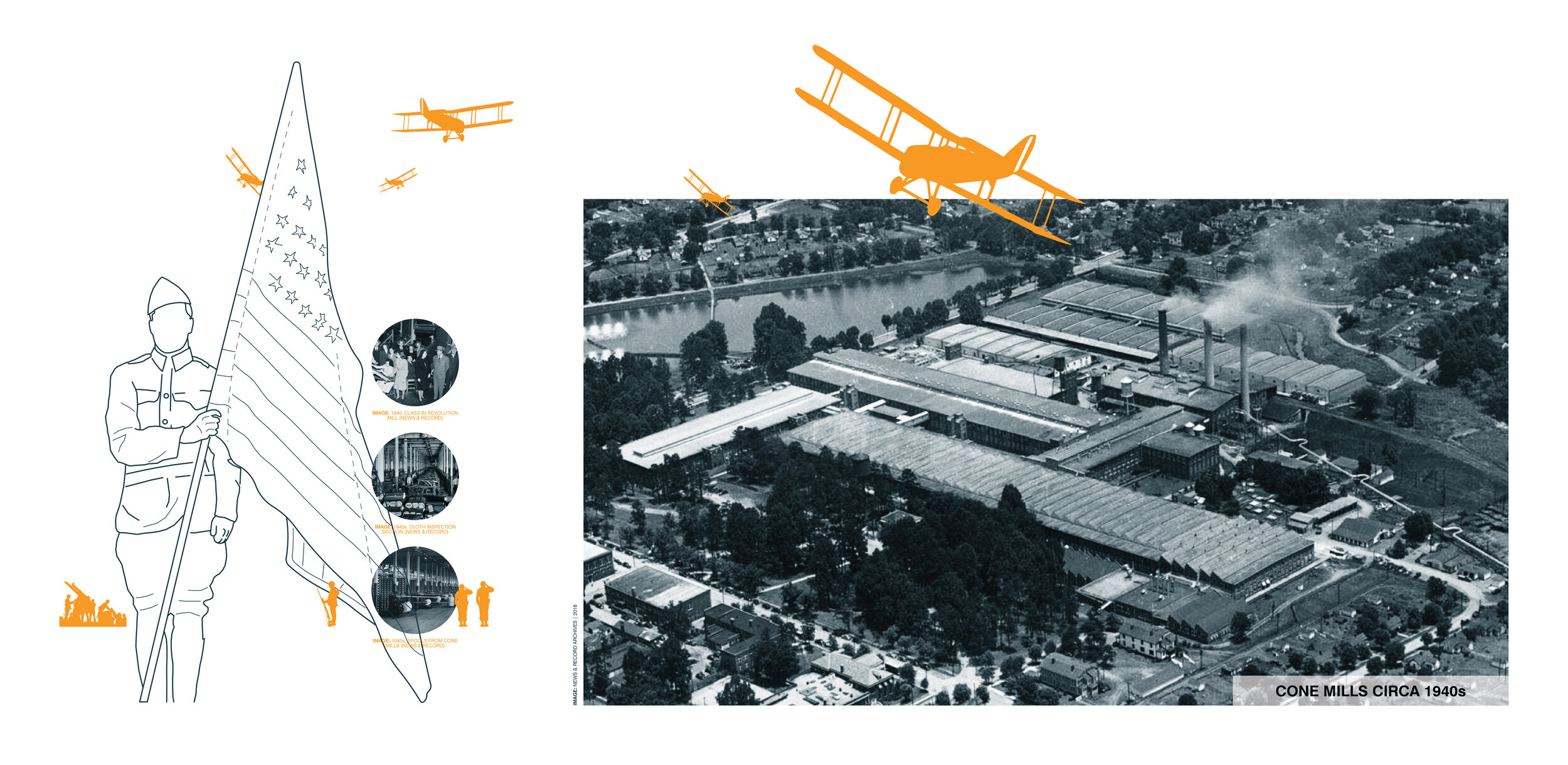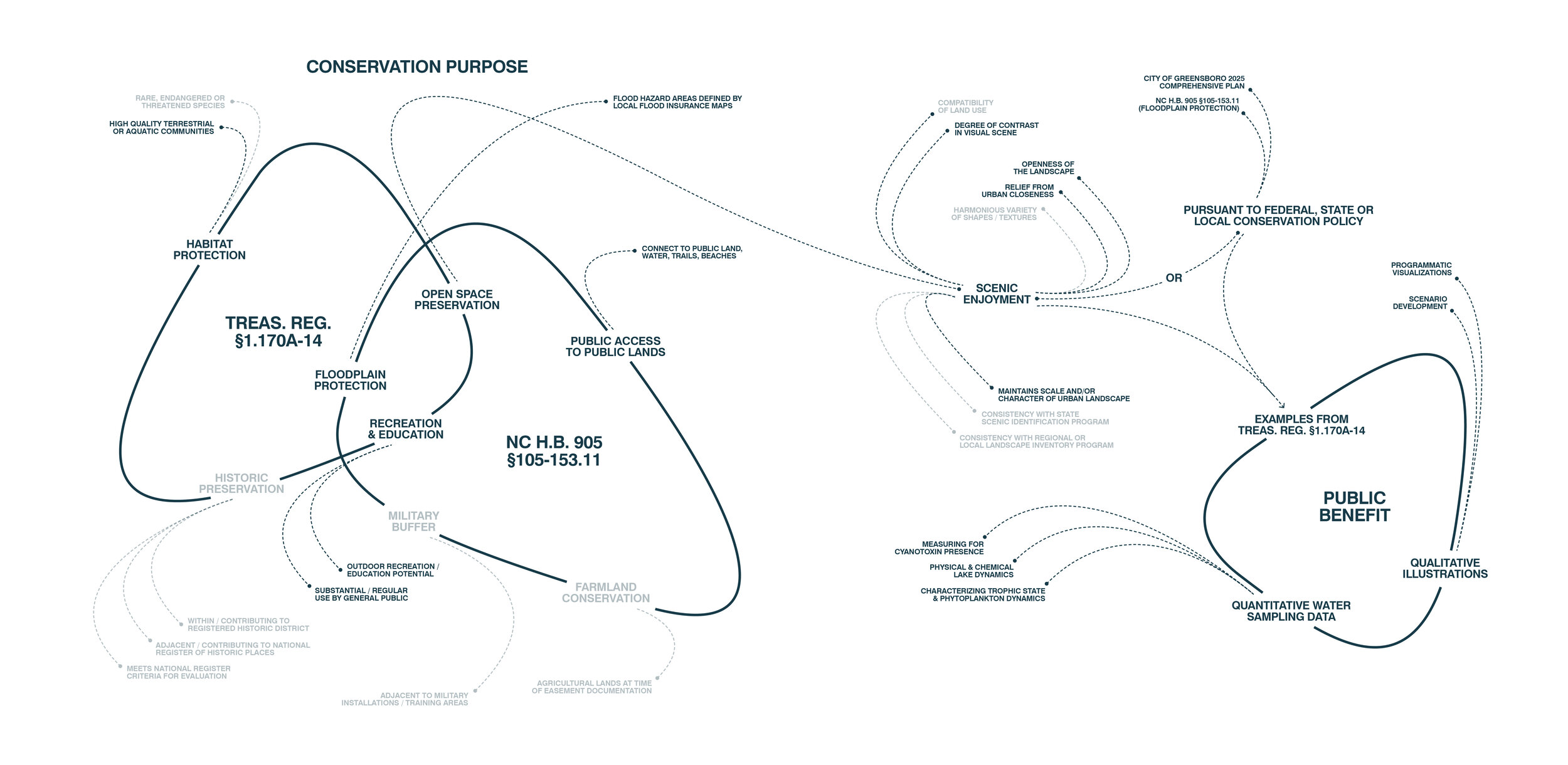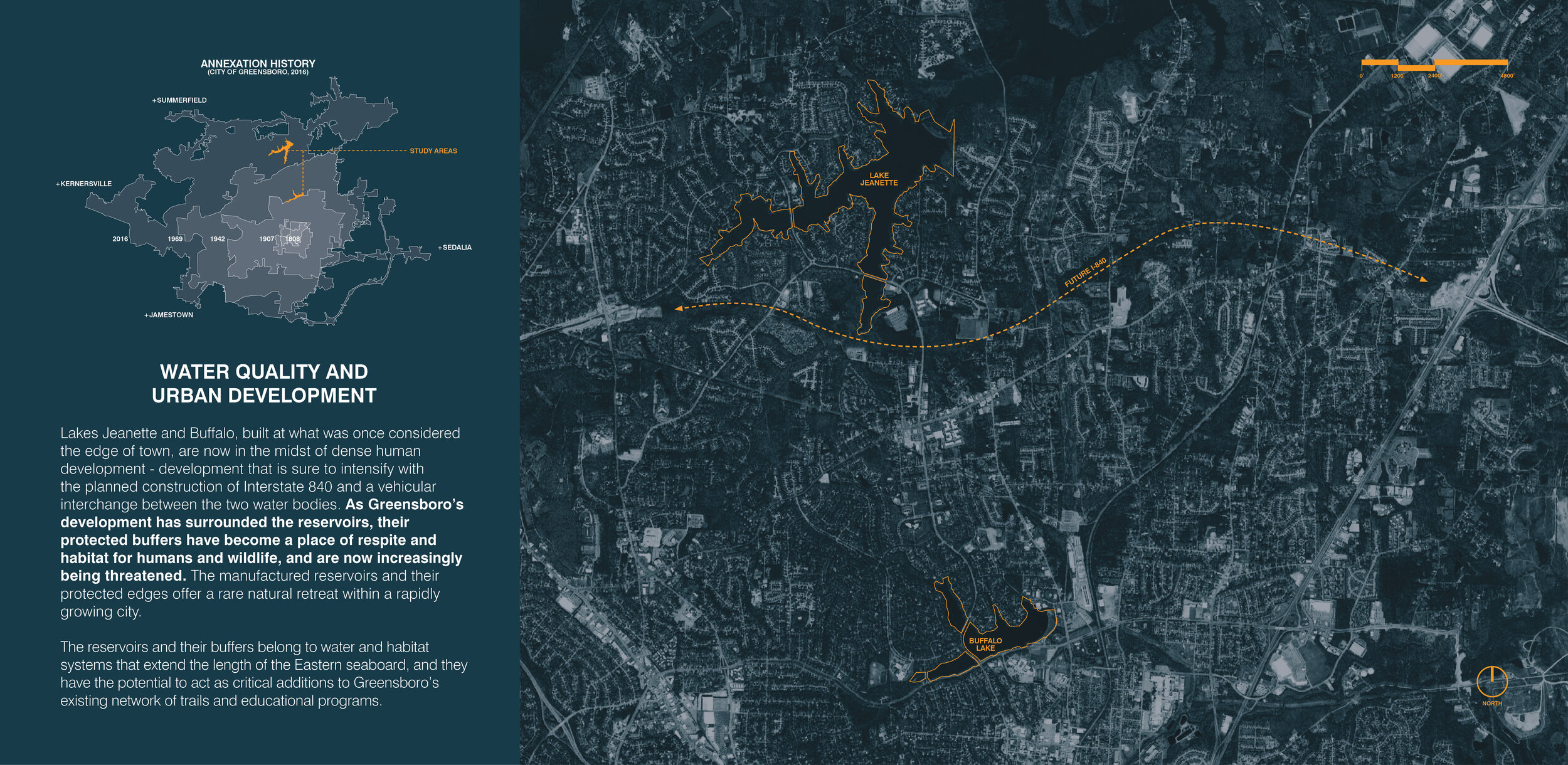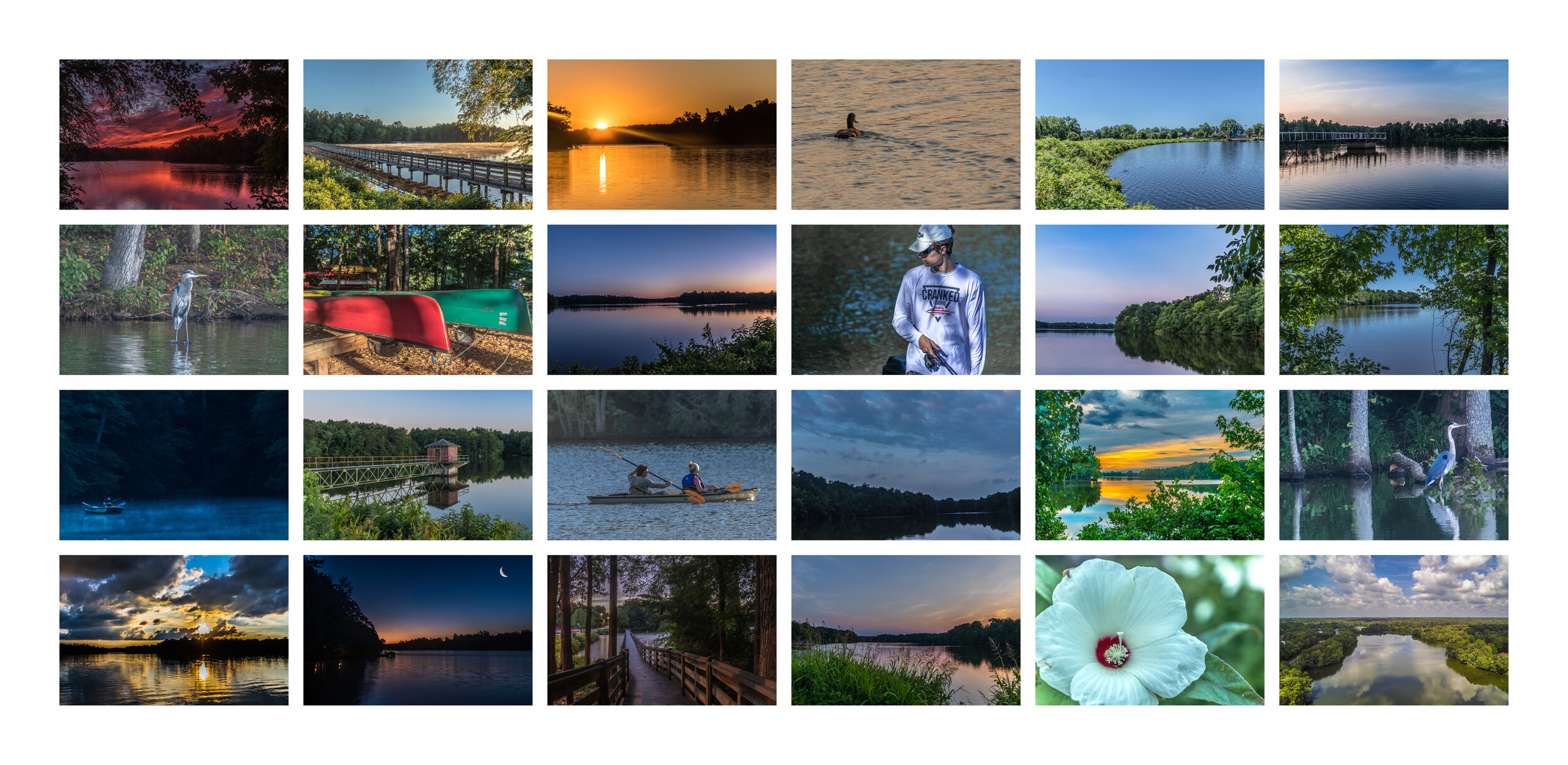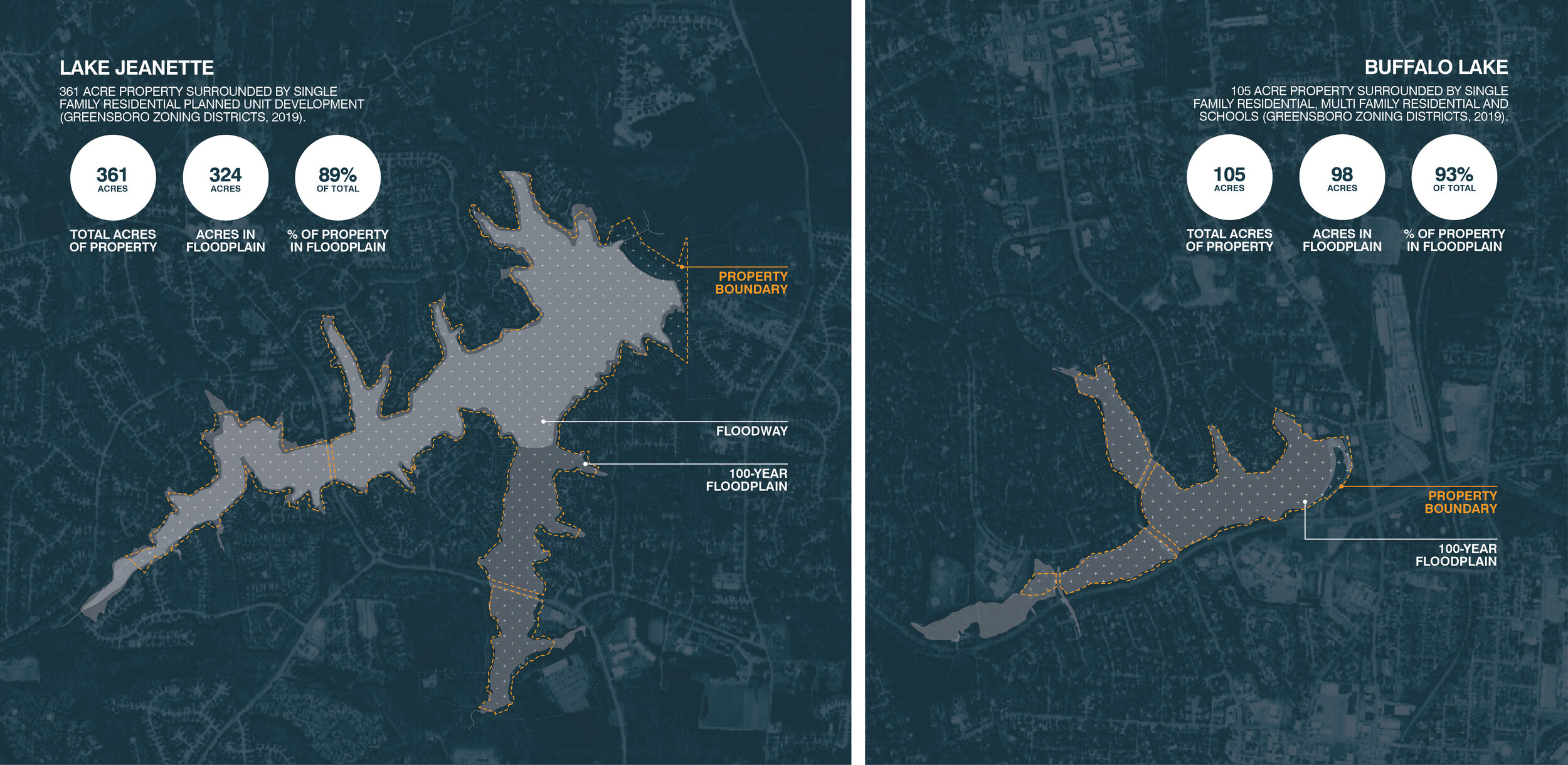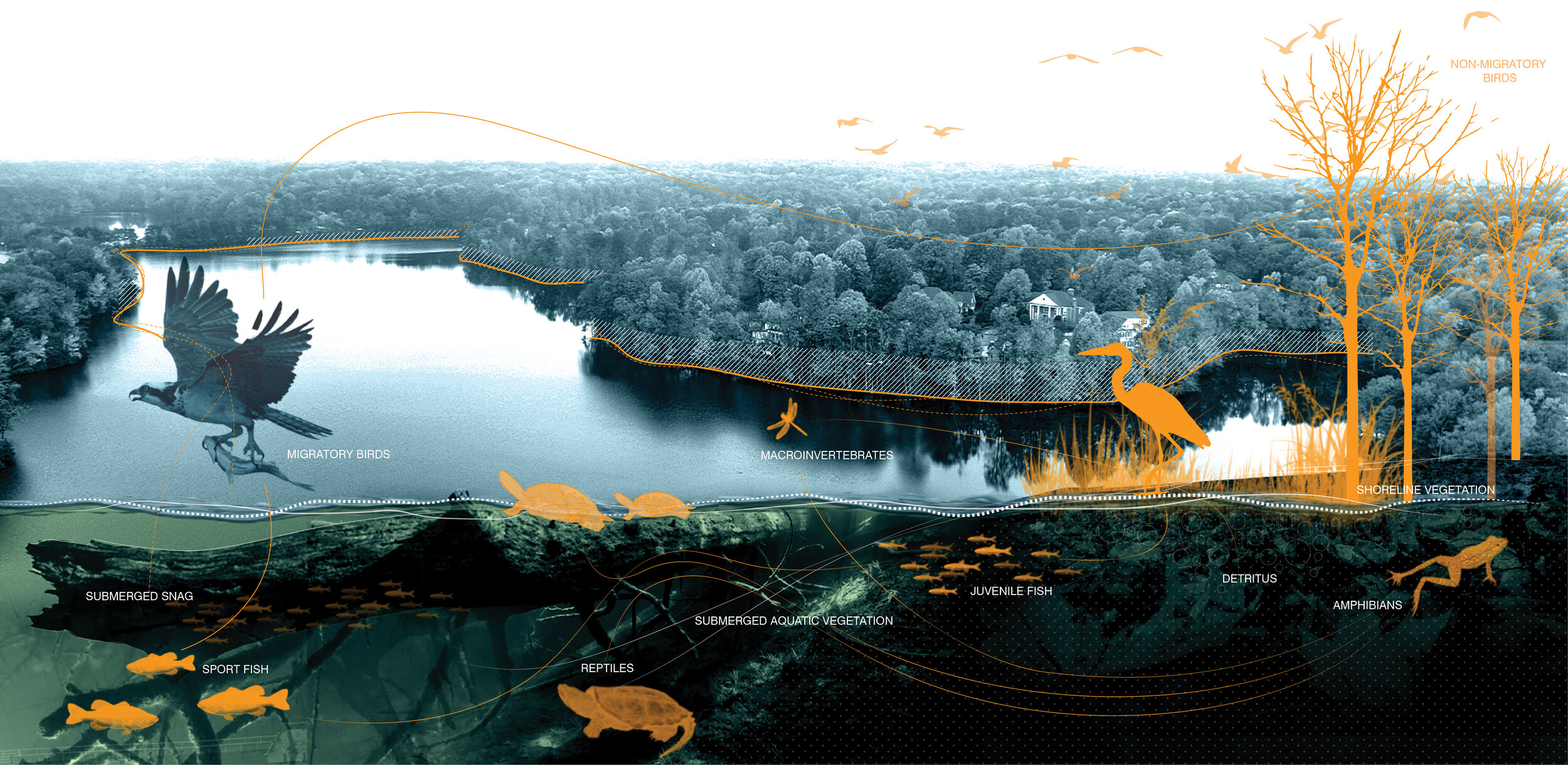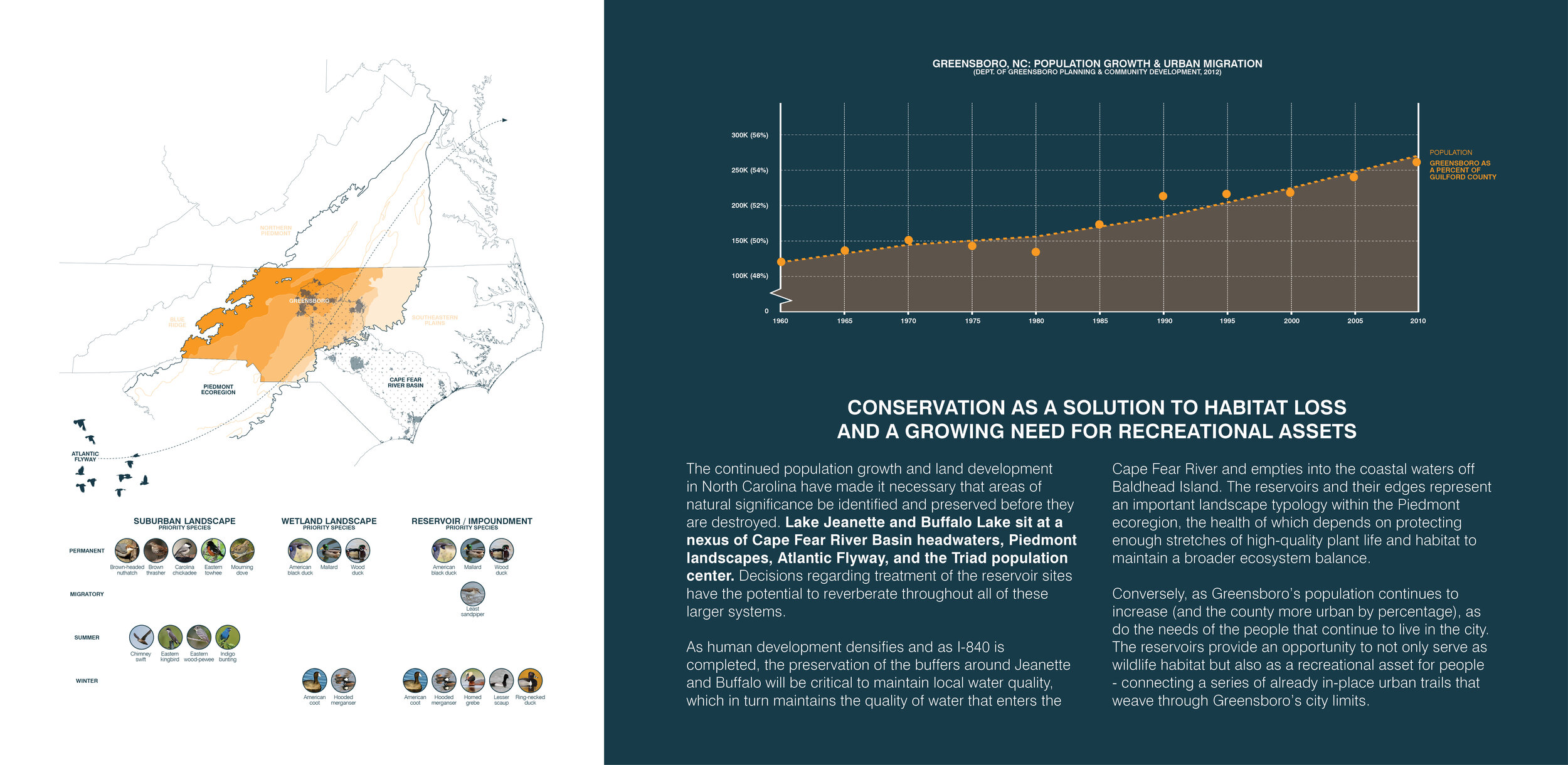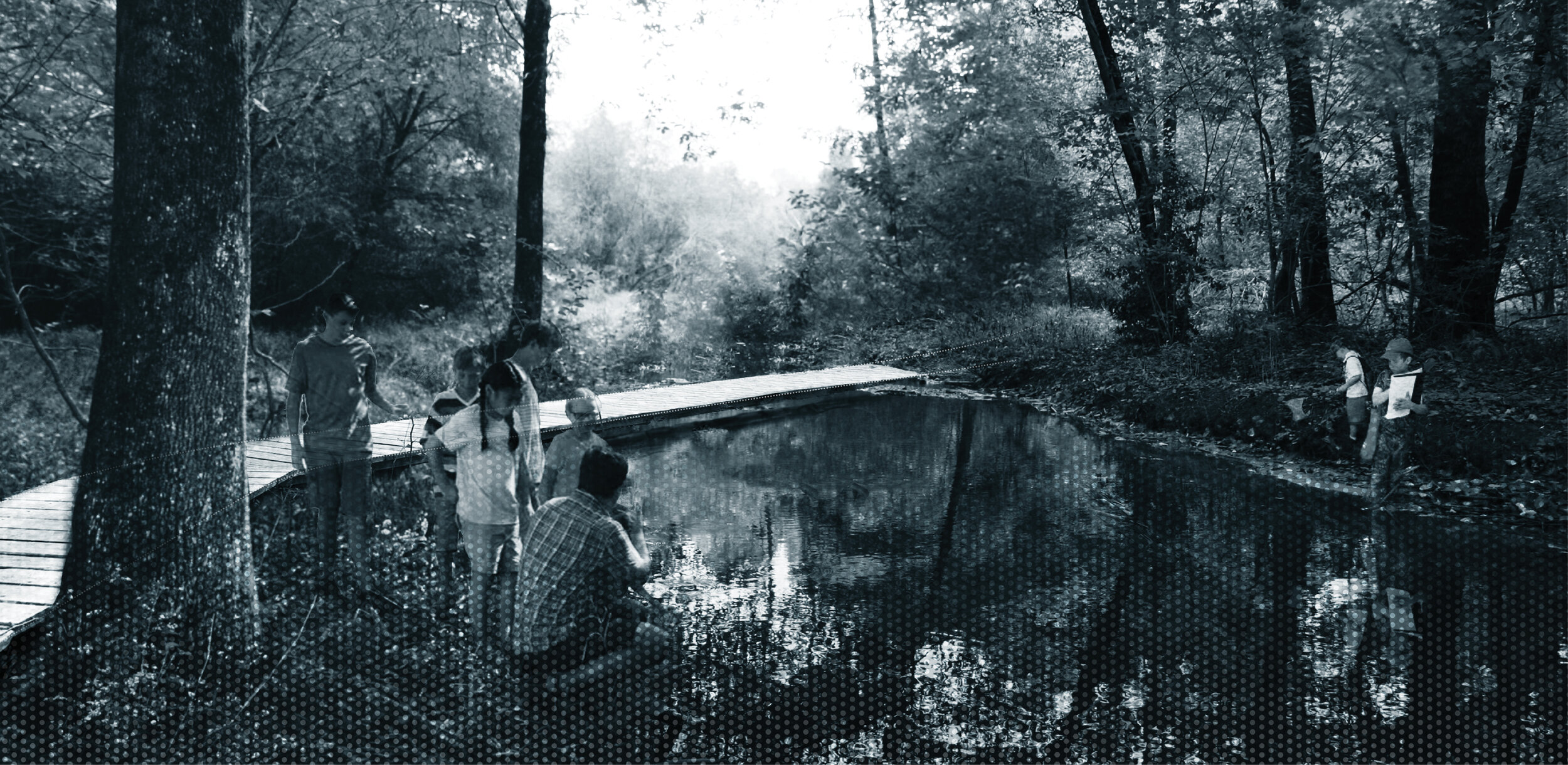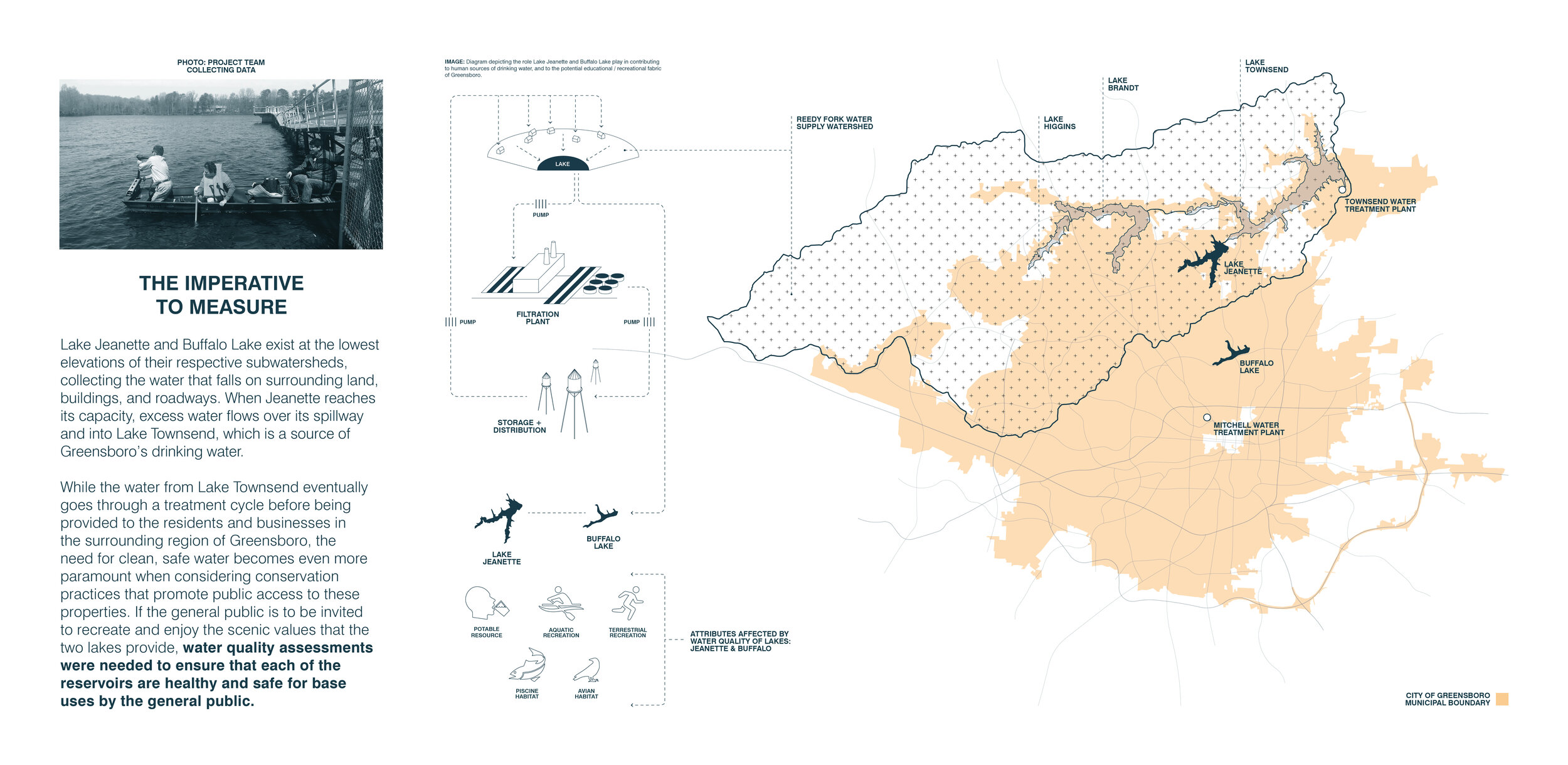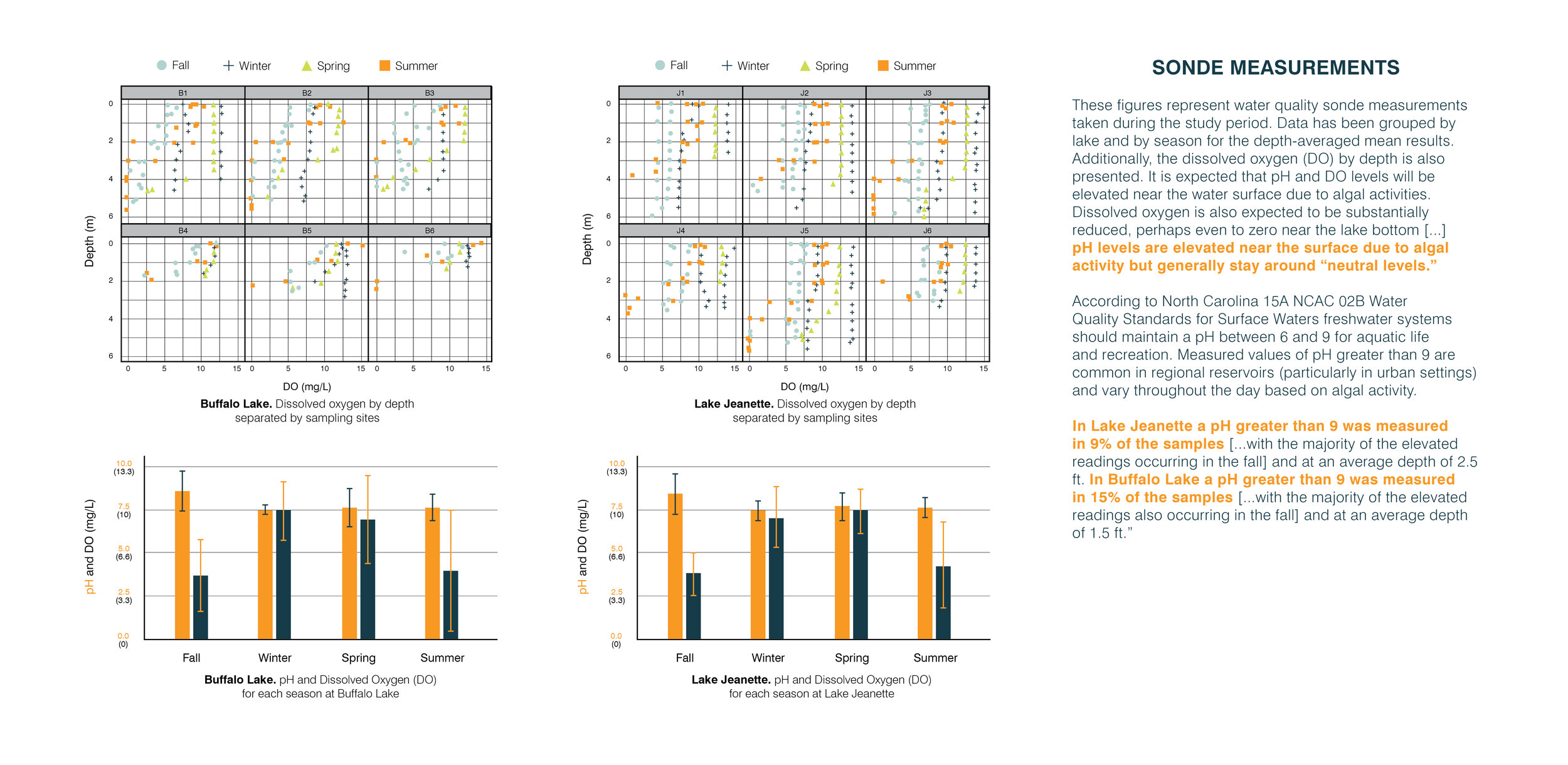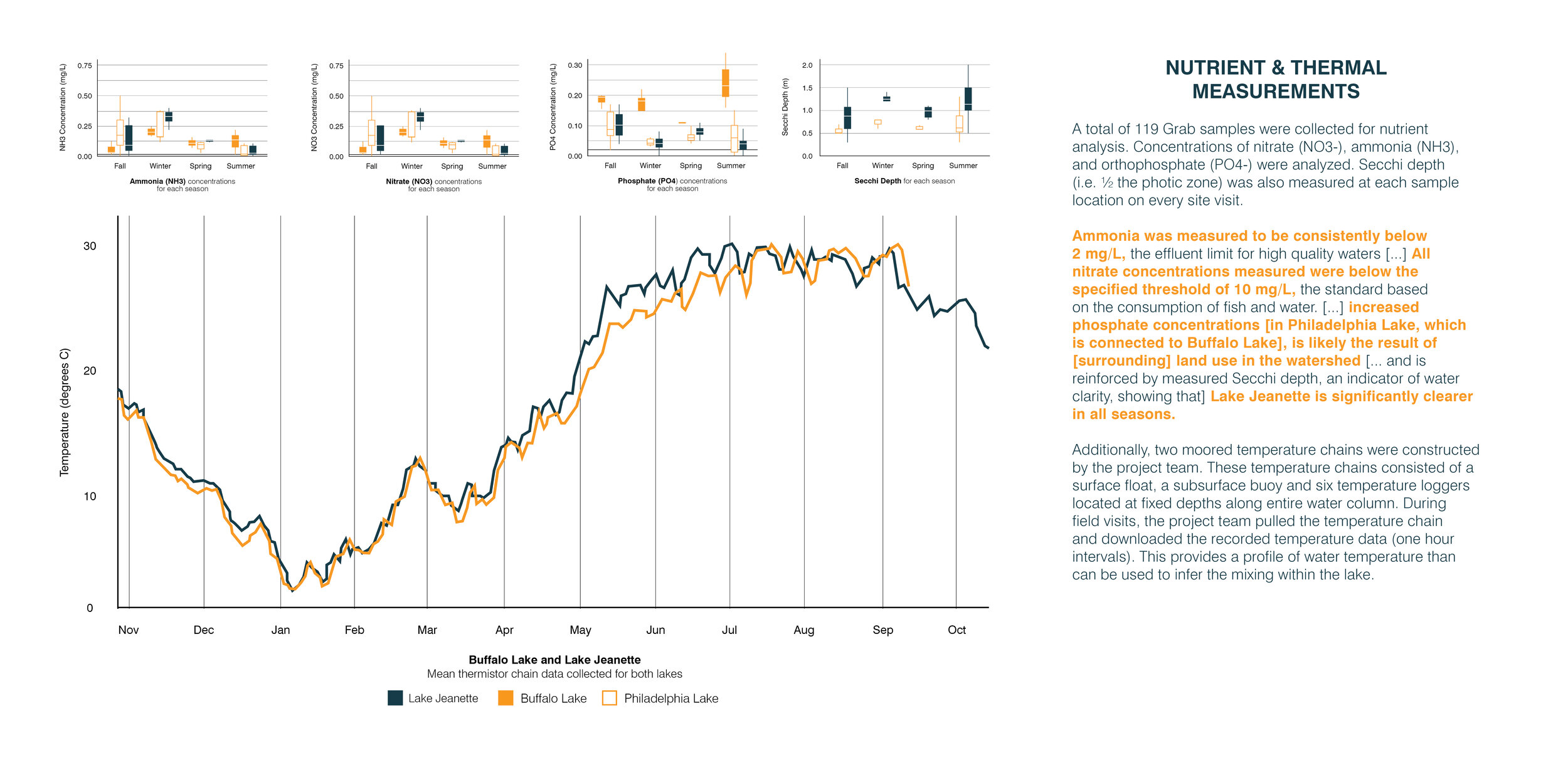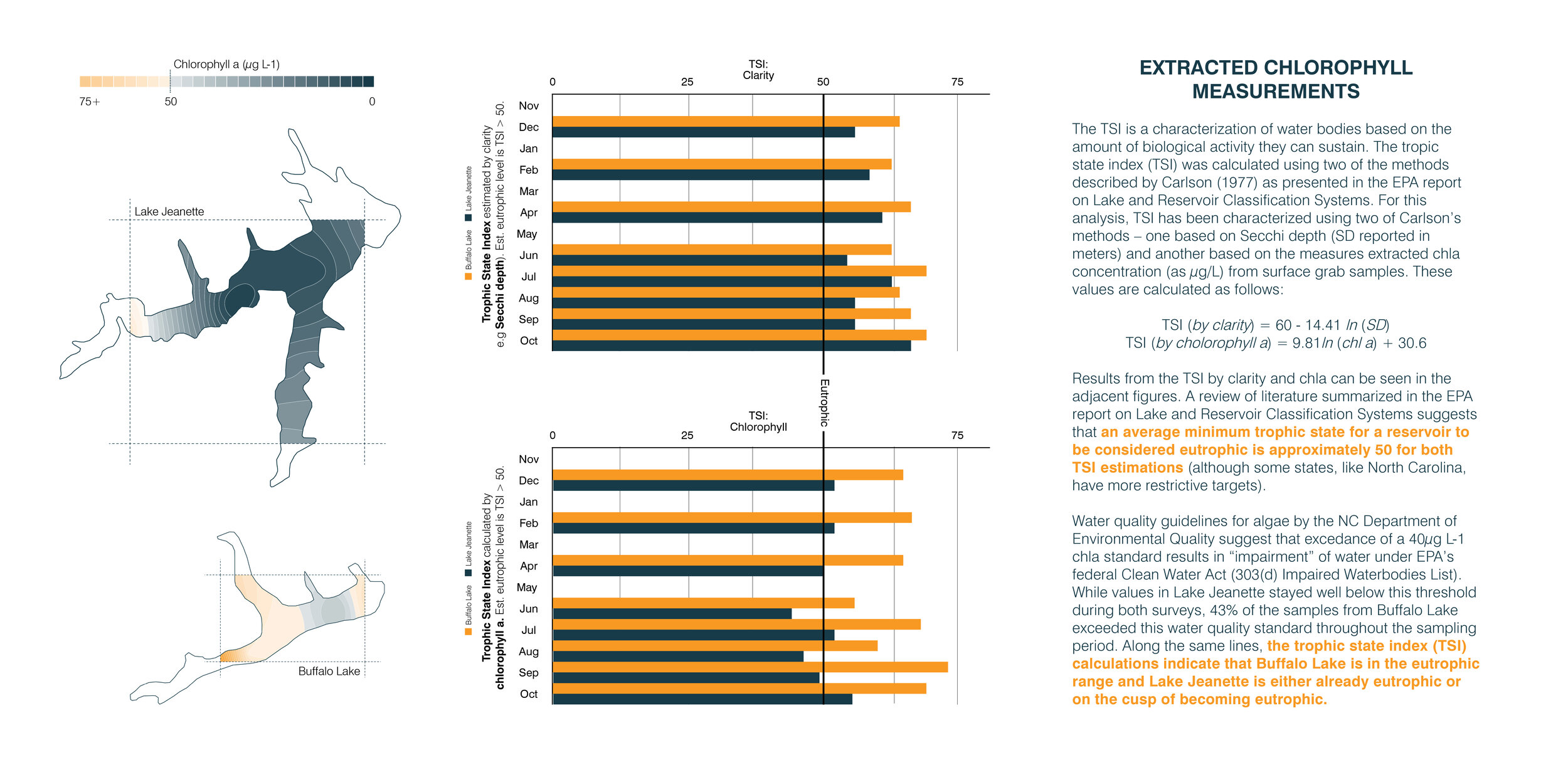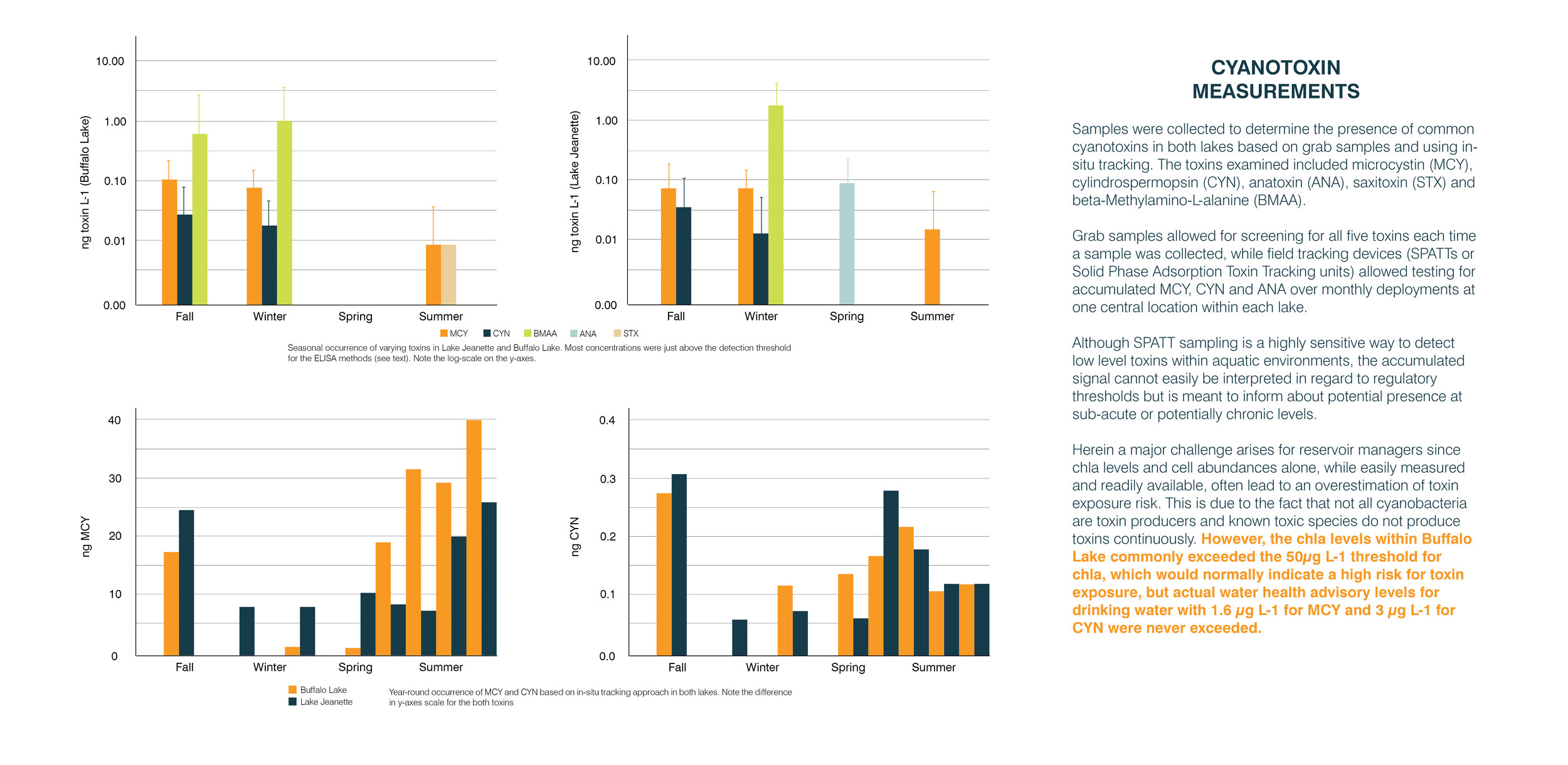Project Summary
This research assessed the conservation purpose and public benefits of two privately owned reservoirs within the city limits of Greensboro, North Carolina. As Greensboro has grown, the reservoirs have become rare natural retreats that provide critical habitat and protect the city’s drinking water supply.
Researchers analyzed samples from the lakes and contributing riverine and groundwater locations to evaluate reservoir health related to algal biomass, cyanotoxins, temperature, and water quality to determine:
+ Lake mixing structure
+ Function(s) of photochemical pathways in upstream wetlands
+ Movement of contaminants within the reservoirs, contributing streams and groundwater
Case studies of other urban reservoirs and review of existing environmental/planning reports were conducted to situate the landholdings within their social, physical and ecological contexts. Resultant longitudinal data and contextual analyses informed geospatial illustrations that align land-planning practices and recommendations with state and federal conservation policies. Initial outcomes are guiding conservation planning and programming measures that support responsible and sustainable stewardship of these unique and high-value land, water and cultural assets, including linkages to existing public recreation amenities and trail networks.
Data, analyses and recommendations compiled by the research team support placing the full extents of both properties in conservation easements, specifically as they:
+ Correspond with federal guidelines contributing to Open Space Preservation
+ Correspond with federal guidelines contributing to Outdoor Recreation and Education
+ Align with state-level conservation initiatives specific to Floodplain Protection
Water testing revealed the two lakes are nearing eutrophic levels that could promote algal blooms in the future, underscoring the urgency to conserve and protect these water bodies—including adjacent buffers—so they can continue to support a diversity of flora, fauna and future generations of residents.
Awards
Honor Award: Research
ASLA SE Regional Conference | 2019
Sample Images
